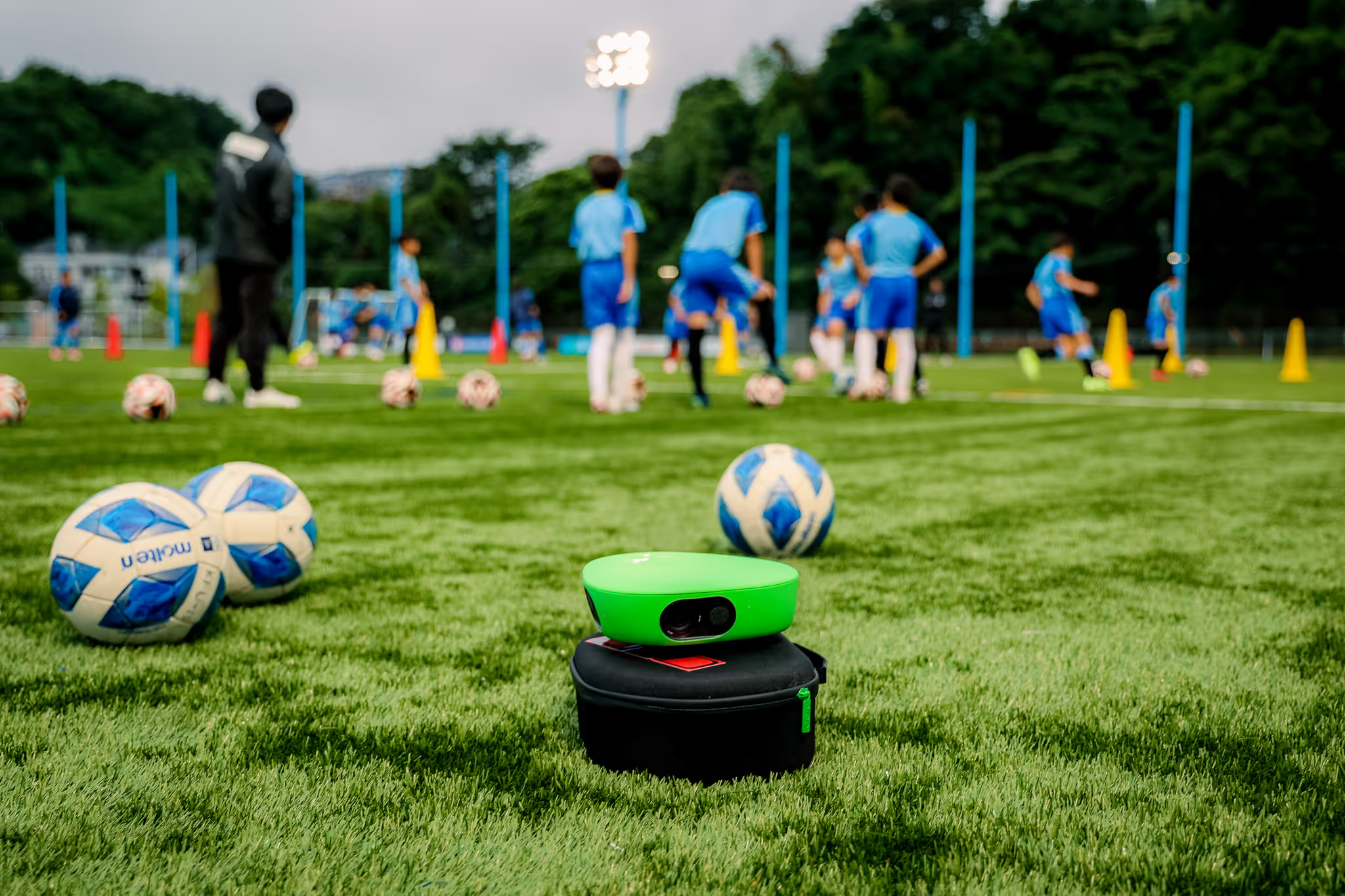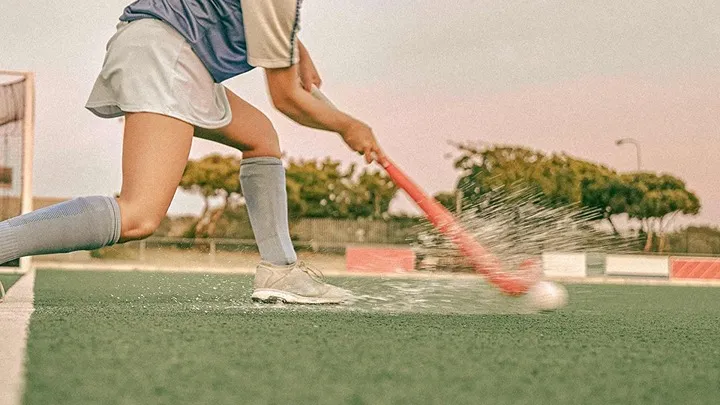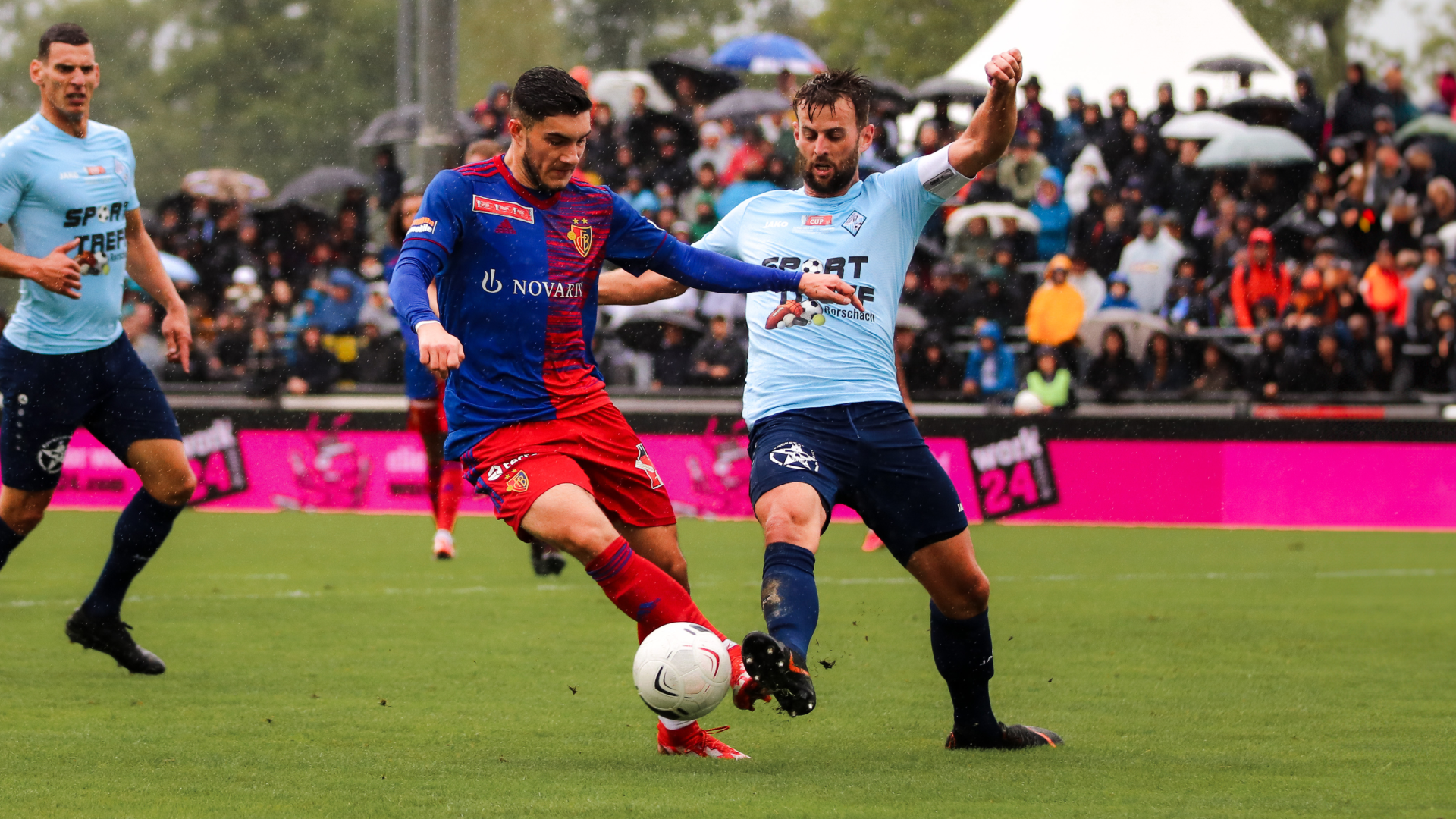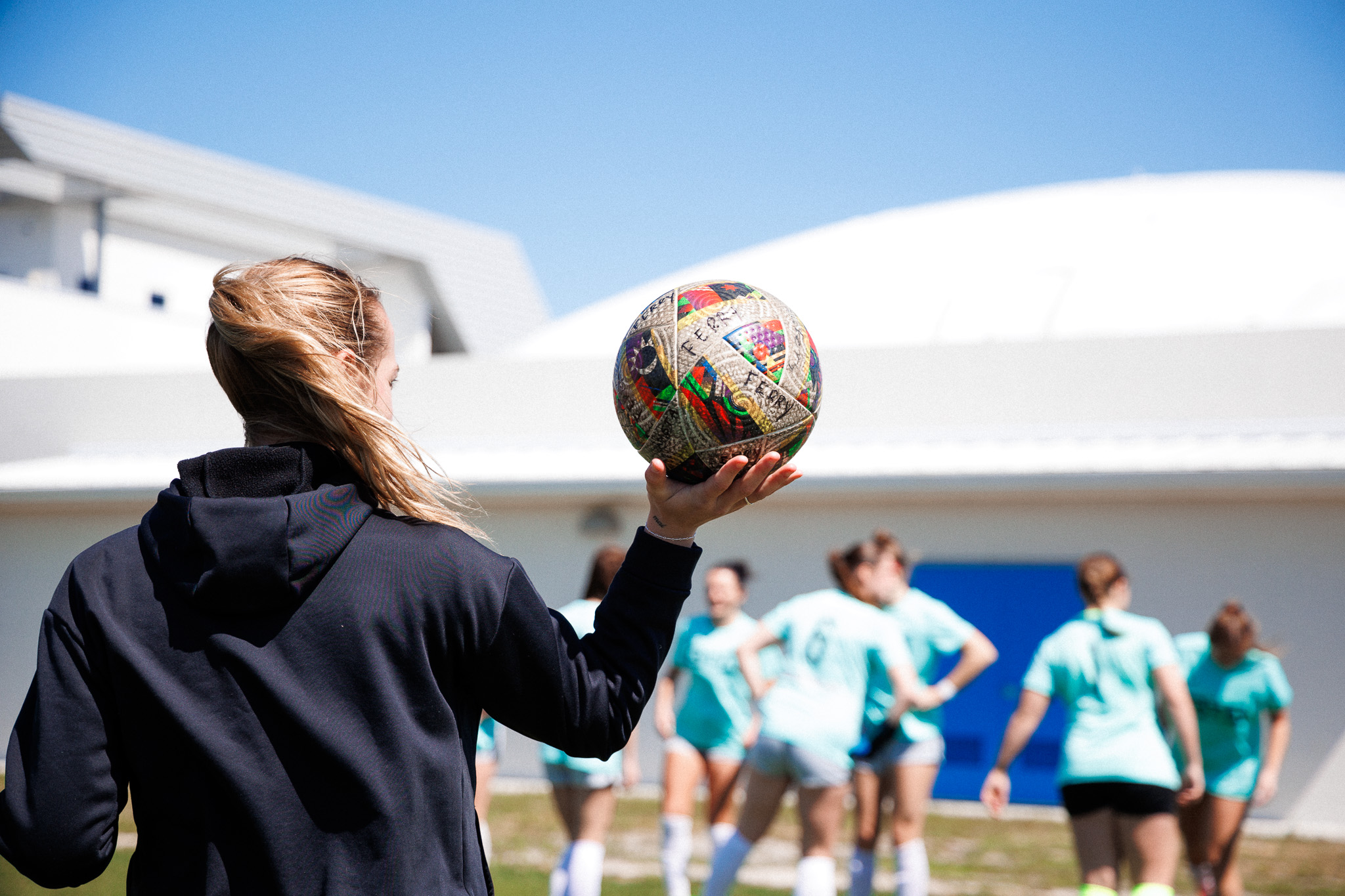How Video Technology Empowers Afghan Women's Football Dreams
Frederik Hvillum
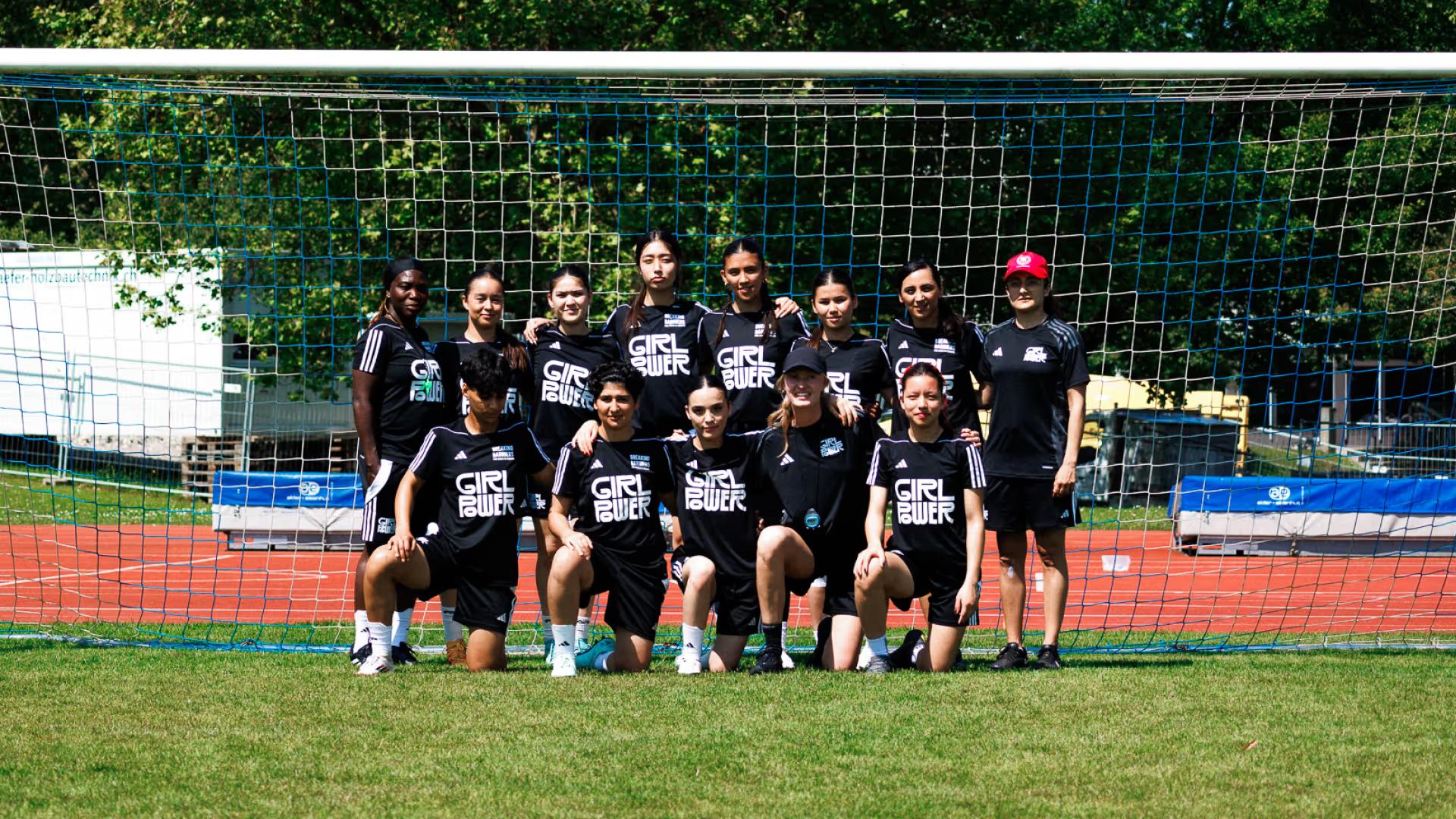

Being seen is the first step to being heard. At Girl Power’s summer camp, Veo cameras captured Afghan women footballers as they trained with professional clubs, creating powerful visual proof that talent knows no borders and that representation can spark revolutions.
On a sun-drenched training ground in Zürich, Switzerland, Fati adjusts her boots and takes a deep breath. It's her first time at Girl Power's Summer Camp, but the nerves she felt arriving have transformed into something else entirely; determination mixed with belonging.
"It's my first time being here in this camp, so I'm really excited. And it does really mean a lot for me," she explains after training. "I think it's really motivational to see other people and girls, especially around me. They have the same background as I. It’s a feeling that I can do it as well as other girls."
For Fati and her teammate Maryam, this week in Switzerland represents far more than football training. It's a proof that sport truly can change lives.
A Voice for the Voiceless
Maryam's presence at the camp carries additional weight. Having started playing football at age 10 and joining Afghanistan's national team at just 12, she now plays in Portugal. But her journey to Zürich is about more than personal achievement.
"It's also my first time. I have to thank Girl Power for making this opportunity for us," she reflects. "Being here for me means being aware of Afghan females who are still in Afghanistan, who cannot speak in public, who cannot go to school, who cannot play football. I'm representing them."
These words carry profound significance. While Maryam trains under the Swiss sun, women and girls in Afghanistan face exclusion from sports, education, and public life. Each touch of the ball, every sprint down the wing, becomes an act of resistance.
The contrast is stark: Maryam has been playing football for over a decade, representing her country on the international stage. Meanwhile, Fati discovered the sport just four years ago after arriving in Germany, yet both share the same determination to use their platform for something greater than themselves.
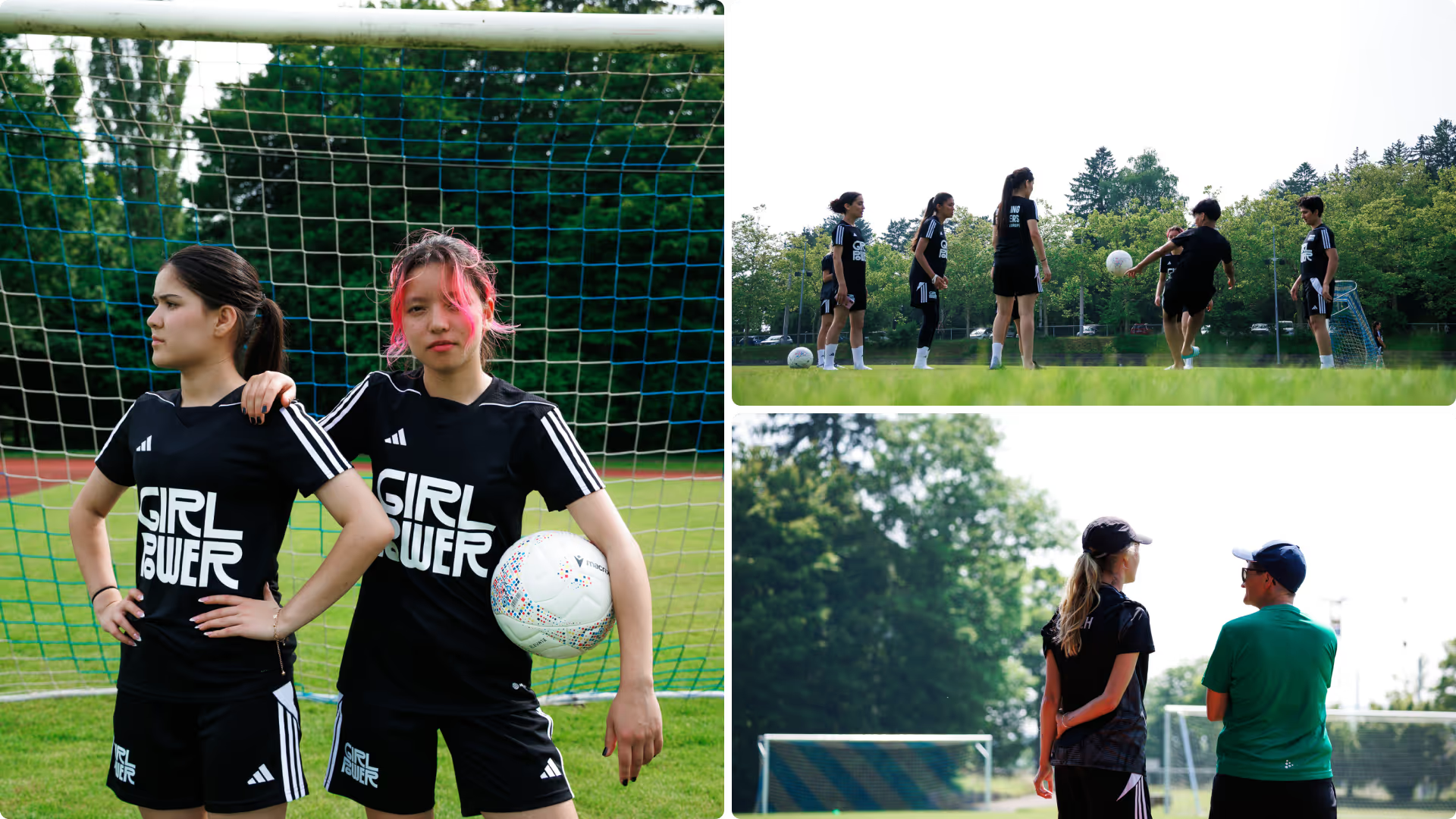
Finding Home Through Football
For Fati, football became more than a sport. It became a pathway to integration and belonging. I started playing football when I came to Germany four years ago now. So it's fresh, but I played intensively, and I love it," she explains.
The impact on her life extends far beyond the pitch. "In Germany, I also started to learn the language. So it kind of helped me to get other people who are speaking German and learn the language, firstly, and also to get to have some friends. Because I was a new person in a country, but I found a lot of friends there."
Football provided what many refugees struggle to find: community. "I'm not alone here, not in Germany, not in other countries. So it had a very big impact on me," Fati continues. "It's kind of a big challenge to come in a new country, new culture, and it's good to have new hobbies."
The sense of belonging extends beyond language learning and friendship. "It's a feeling of belonging to something, to find a community, because I think it's very important and through community, you find yourself, your identity, and you kind of think you're at home."
The Science Behind the Beautiful Game
While the emotional stories capture headlines, sports scientist Pelin brings a different dimension to the camp. With over fifteen years of experience in sports science and seven years of working with women's football clubs in Denmark, including teams such as HB Køge, FC Nordsjælland, and B93, she utilizes cutting-edge sports science to help these young women reach their full potential, informed by her expertise in female physiology.
"I'm a sports scientist and high-performance specialist. I am also part of Girl Power to support." Pelin explains. "I have been working with women's clubs in Denmark as a sports scientist or head of performance."
Her approach goes beyond traditional coaching methods. "My part is a bit different, because I can support players with observation in a short time. I review their medical records to determine if they require rehabilitation. I can manually check them when we meet in person, as it is not possible to do so remotely. Of course, I can send some training/rehab plans, but you never know if it is 100% right for that person based on their background, biomechanics, or injury records before seeing them in person."
The camp environment allows for personalized attention that many players rarely receive. "Most important is that they have fun. They come together because they live in different countries, embracing togetherness and enjoyment, and then gain benefits from our knowledge both in and out of the field.
Pelin's focus extends to education about physiology and performance optimization. "I help them on the field but also off the field, sharing scientific information with them about their bodies, their physiology, and how they can sleep better, optimize their nutrition, recover more effectively, and improve their performance through strength training and conditioning."
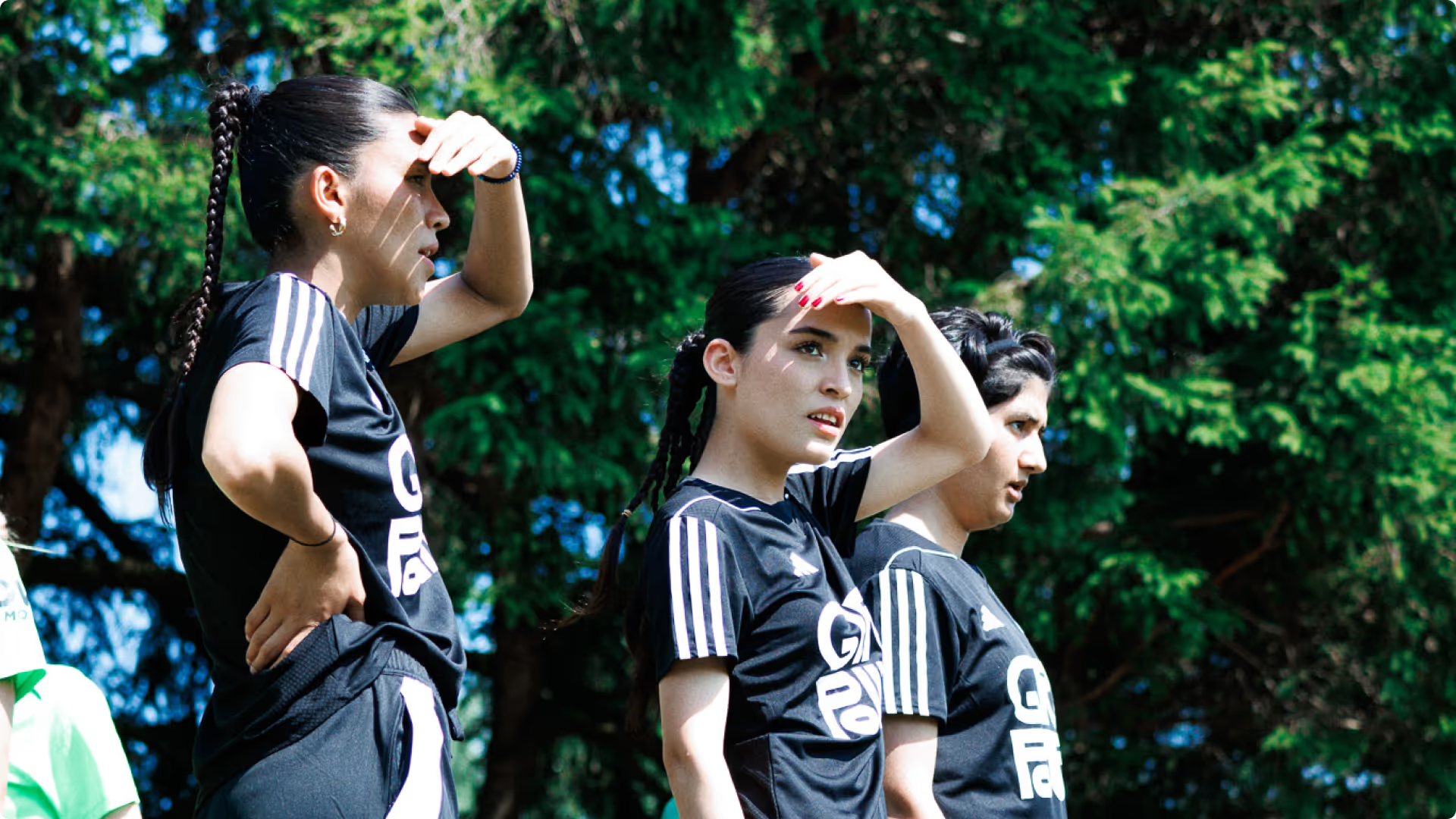
This holistic approach addresses the gaps in sports science education that many female athletes face. "How you sleep, what you drink, and what you eat affect your performance and your physiology. If they know those things, they can apply them even when I'm not there."
“Football is a universal language”
Ayisat Yusuf brings a unique perspective to the camp as both a former international player and experienced coach. Originally from Nigeria, she represented her country in multiple Women's World Cups and African Championships, competed in the Olympics, and now works as a sports instructor and football coach in Finland.
"I used to be a professional football player, and I played for the Nigerian women national team for many years, been a couple of women World Cups, three times, four times, African championship. And I was also an Olympian," she recounts proudly and shows her tattoo of the Olympic rings.
Her connection to Girl Power runs deeper than professional obligation. "For me, Girl Power is like a family team, and Khalida Popal is like my sister from another mother. When it comes to Girl Power, I'm always very interested to support in my own little way. As a football coach, I feel like these girls need young role models, and more inclusion, giving them the opportunity to play football, to do sports, and most importantly, for them, to have fun and be happy in life."
Despite never having worked with these specific players before, Yusuf demonstrates how football transcends language barriers. "To be honest with you, I can say I have a plan, but not a structure. As a football coach, as an international player, first, you have to find a way to make them feel safe and secure, and you have to make them understand the reason for the training and the purpose of being here."
Her coaching philosophy emphasizes connection over complexity. "I have no idea where they play, even at some point, I couldn't call their names because I don't know them, but we just find the connection. Football is a universal language. I make sure that I show them what I ask them to do, and they do it."
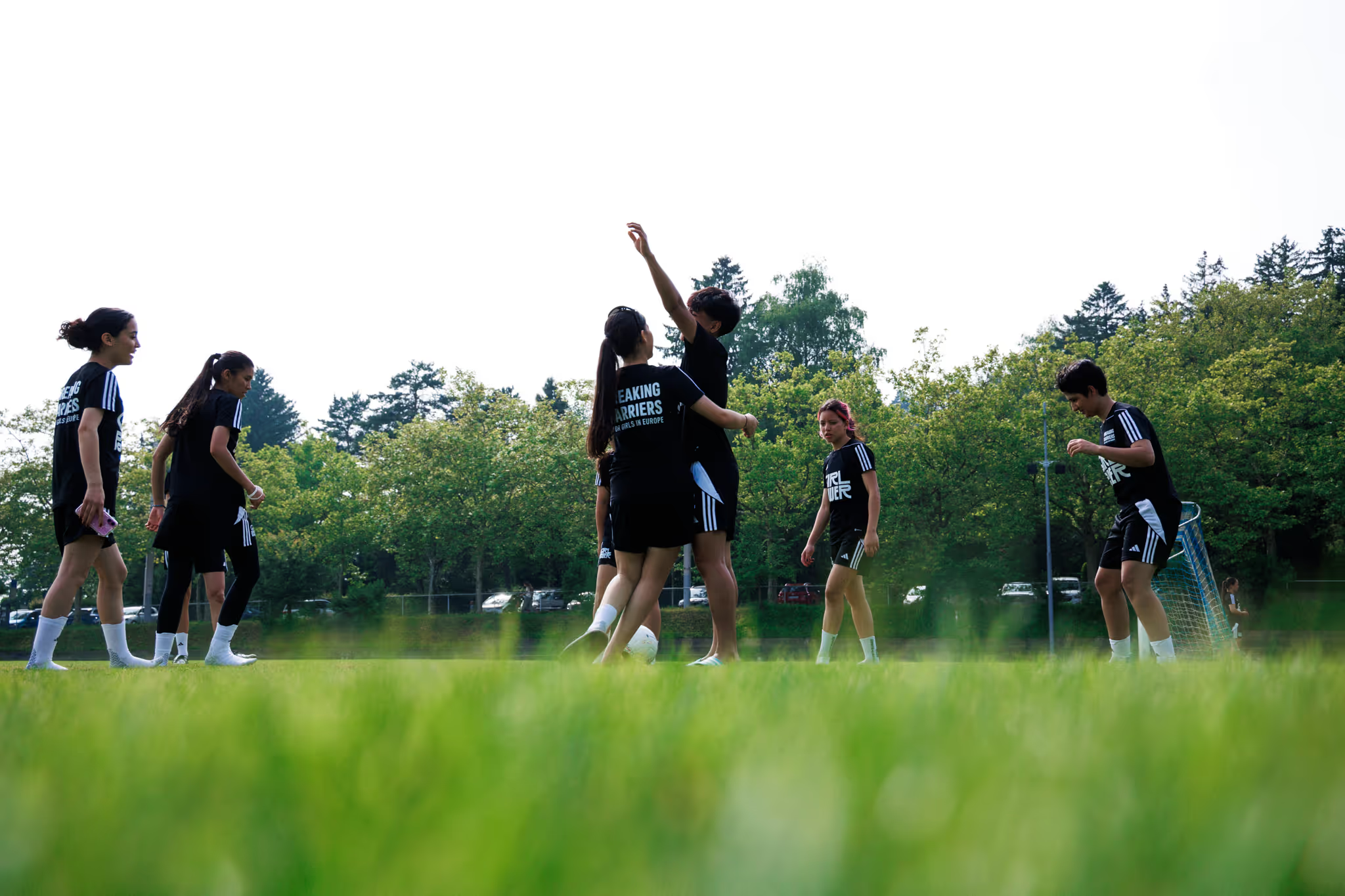
Technology as a Tool for Empowerment
The integration of Veo camera technology at the camp serves multiple purposes beyond simple match analysis. For Pelin, video technology has been an essential tool throughout her career in Danish football.
"I use video a lot, especially when I work in Denmark. I use it as a biomechanical tracker. When trainers send players to attacking positions, I watch them as biomechanical action, not like football action."
This scientific approach reveals insights that traditional coaching might miss. "Sometimes the trainer wants the player to do this action, but they can't, not because of their football skill but because of the biomechanical. Maybe they are not using their hip flexors. So when I see that, I can help."
Video analysis also aids in injury prevention and rehabilitation. "I watch them when injuries happen. I see the video, and it's like a history of how it happened, because it helps a lot. We need to know the history of the injury to help improve the right muscles."
For the players themselves, video technology offers opportunities that extend beyond the camp. "They can see themselves on video, and they can advertise, use it as commercial. When they go to other clubs and say 'I'm a professional player, I train,' clubs ask 'Can you send us your video?' So that's a good thing for them, especially Girl Power players, because they are everywhere in the world."
Dreams and Determination
When asked about their football aspirations, both Fati and Maryam reveal the simple yet profound nature of their ambitions. For Fati, the goal is beautifully straightforward: "I hope to never stop playing – until I really can't do it anymore. As much as I can, I would play."
Maryam's perspective reflects her deeper connection to the sport's meaning. "I was born in Kabul, and I fought a lot just to have football in my life. I never wanted to be the best in the world. I just want to have that in my life. So now I'm here, and I'm glad. I don't want to compare myself to other people. I am always myself. In my mind, I'm always the best."
The Power of Representation
The impact of video technology extends beyond individual development to broader representation and inspiration. Fati recognizes the motivational power of visibility: "It's really nice to have my skills on video, but far more important for me is to have my people seeing that and watching that, to give inspiration out of it, and see, oh, here's another person doing that. If she can do it, I can also do it."
The technology also serves as a tool for self-motivation during difficult times. "When I'm tired of football, and I'm like, 'Oh, I really can't do it anymore,' then I would watch the video, and I would say, 'Hey, you did that, you can do it again.'"
Maryam views her presence on camera as part of a larger mission to change perceptions. "I’m proud of myself, and I want to be a role model for other girls who aren’t allowed to play football, or who think that football is only for the boys. It's not. Football is also for the girls."
A Week of Firsts and Friendships
The summer camp brings together players who rarely have the opportunity to train as a team. Living in different countries across Europe, many are meeting for the first time, yet the connections form quickly.
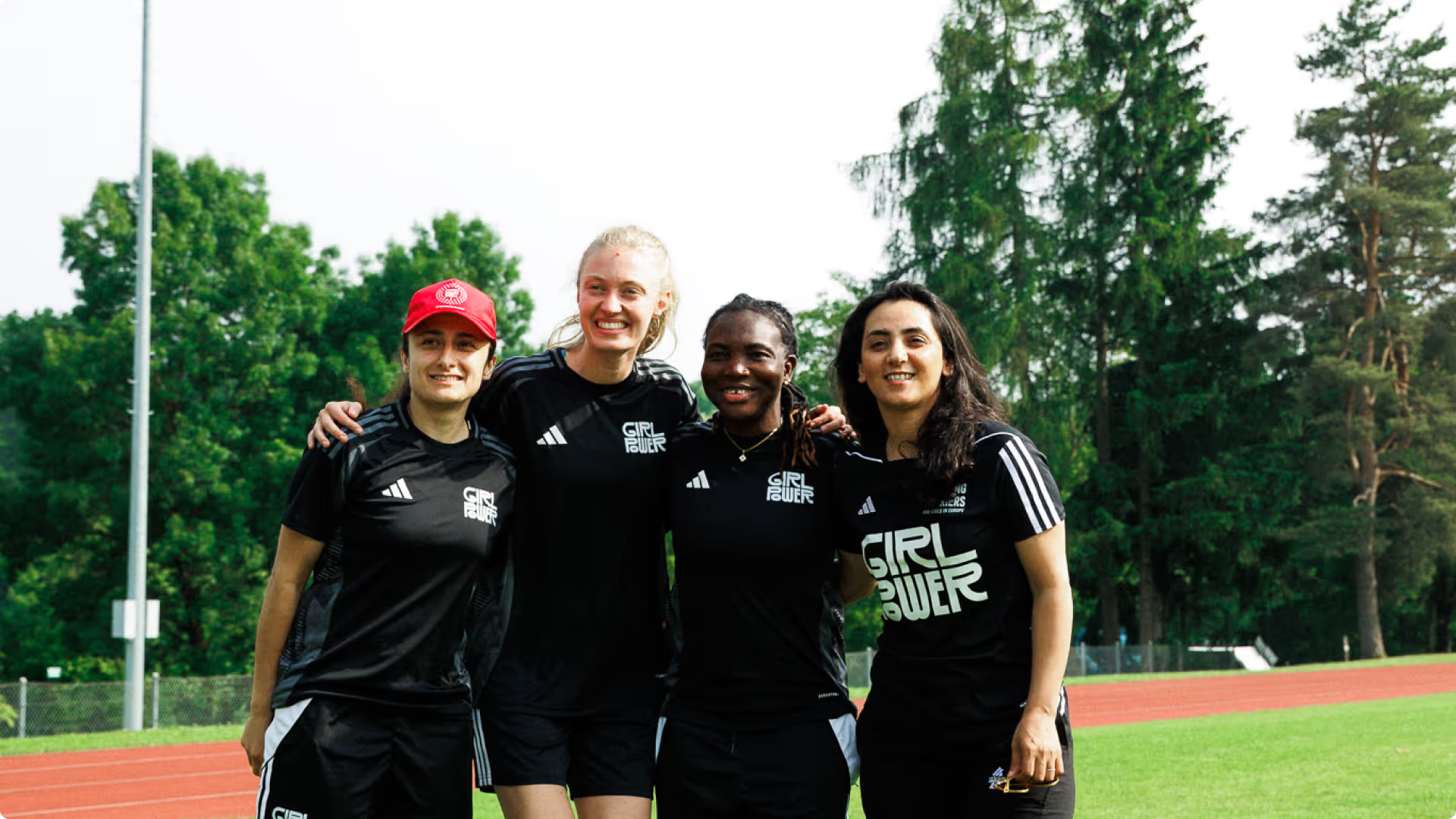
Emily Bisgaard, Girl Power's COO, emphasizes the importance of these gatherings: "The way we work is that we operate across different countries; Denmark, Germany, and the UK primarily. We've also been in Nigeria and Mexico. We use partnerships for funding, but also to continue doing what we do in other places."
The partnerships with bigger organizations and local clubs create opportunities that extend beyond training. "We brought all these players together to train, and Wolfsburg and Grasshoppers are here too. These are big names, big teams. It's really important for the players to be able to play with other professional girls and women, just being in that environment."
The camp structure accommodates varying skill levels and backgrounds through adaptive coaching approaches. "It’s very personal situations and experiences. Some of these girls' families aren’t able to see them play football if they're still in Afghanistan, so with Veo we are able to broadcast games to their families, that is so important for them," Bisgaard explains. Additionally, it fuels their connection to future organisations for them to play at in the future.
Cultural Bridge Building
The camp environment fosters connections that transcend cultural and linguistic barriers. Players from different countries find common ground through shared experiences and mutual support.
Yusuf's coaching philosophy emphasizes creating safe spaces for growth: "You have to find a way to make them feel safe and secure. You have to make them understand the reason for the training and the purpose of being here. It depends on how you approach them, and then the connection will come automatically."
Her own background resonates with many of the players: "I'm from a Muslim background back in Africa, so I have different kind of upbringing, which was really challenging, because as a girl child, I was not allowed to play football at some point. When I was 15 years old, I actually ran away from home. Football was my only means of escape."
The Ripple Effect
The impact of the camp extends far beyond the week in Zürich. For many players, it represents validation of their choices and confirmation that their dreams are achievable.
Maryam's words capture this transformative effect: "Football saved my future. As we know about the situation in Afghanistan, football saved my future. Football is not just about sport, it's about nationalities. It's about identities. It's about the girls. It's about the humans that we represent and respect."
The video documentation ensures these stories reach audiences who need them most. Whether it's a young girl in a refugee camp seeing someone who looks like her scoring goals, or a family reconsidering their stance on daughters playing sports, the ripple effects continue long after the cameras stop rolling.
Competition Against the Pros
The week culminated in meaningful competition against established European clubs including FC Winterthur, Grasshopper Club Zürich, and VfL Wolfsburg. These matches provided more than just game experience. They offered validation and exposure to professional standards.
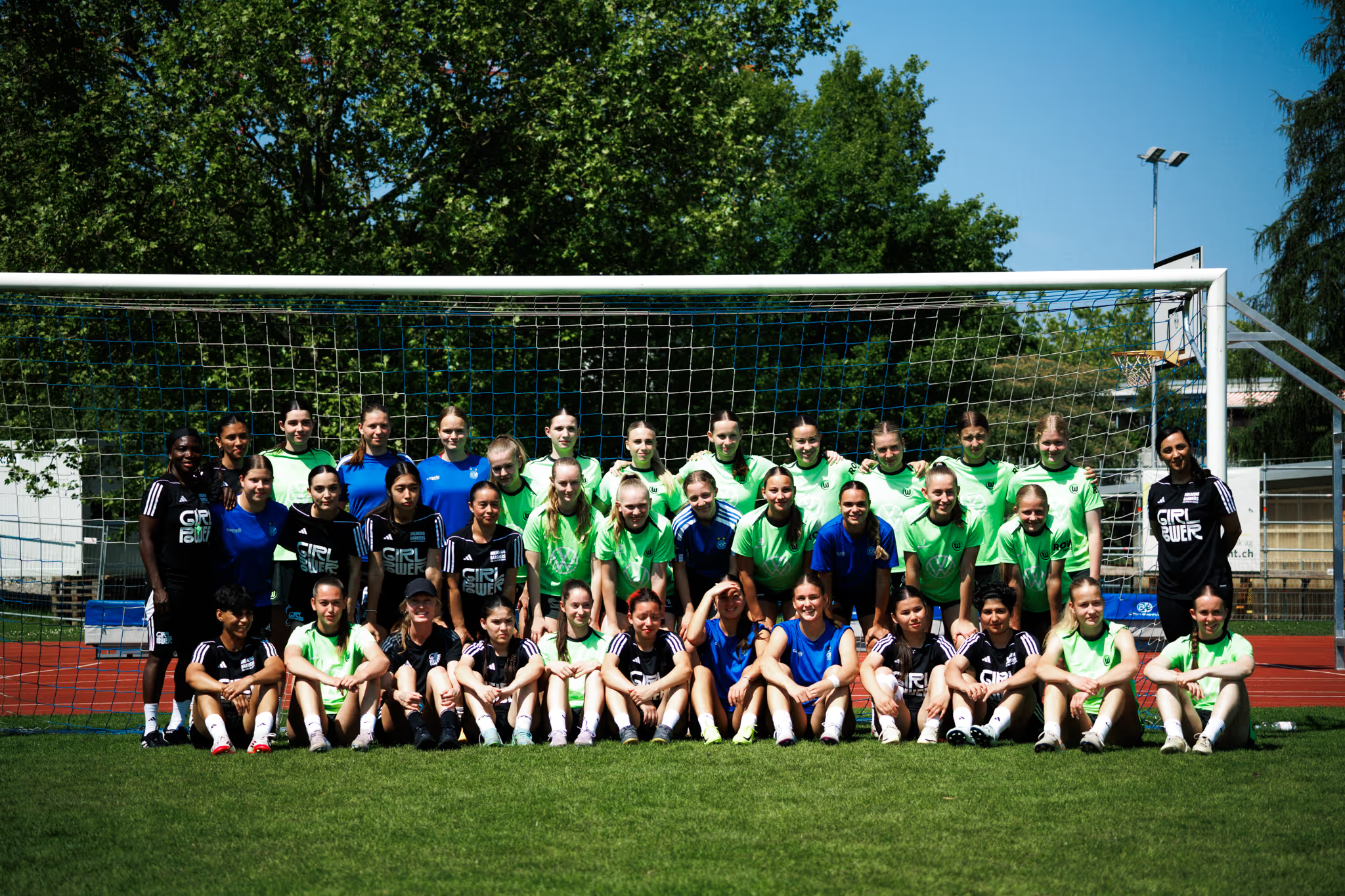
For players like Fati and Maryam, competing alongside and against professional players represented the realization of dreams that once seemed impossible. The Veo cameras captured not just the technical aspects of play, but the emotional significance of every moment.
Looking Forward
As the camp concluded and players prepared to return to their various European homes, the technology had documented something profound: evidence that talent transcends borders, that determination overcomes obstacles, and that sometimes the most important victories happen far from the world's biggest stadiums.
For sports scientist Pelin, the data and footage will continue providing value long after the players disperse: "In the long term, it's more important than just one-time help. They can apply what they learned even when I'm not there."
Coach Yusuf sees the camp as part of a larger movement: "We share the same vision. She used her voice to support and let the world know that people should have the right to do sport. For me as an international football player and coach, I feel I can use my experience to empower these girls, to give them inspiration, to make them believe in themselves."
The video technology ensures their stories reach far beyond Switzerland's borders, carrying messages of hope to young women facing similar challenges worldwide. In documenting their journey, Veo doesn't just record a football camp – it captures proof that dreams persist, that talent deserves recognition regardless of background, and that sport truly can change the world.
Girl Power's Summer Camp was supported by the Coubertin meets Dunant Foundation and featured partnerships with FC Winterthur, Grasshopper Club Zürich, and VfL Wolfsburg. The camp utilized Veo camera technology to document training sessions and matches, creating content for player development and inspirational storytelling.

